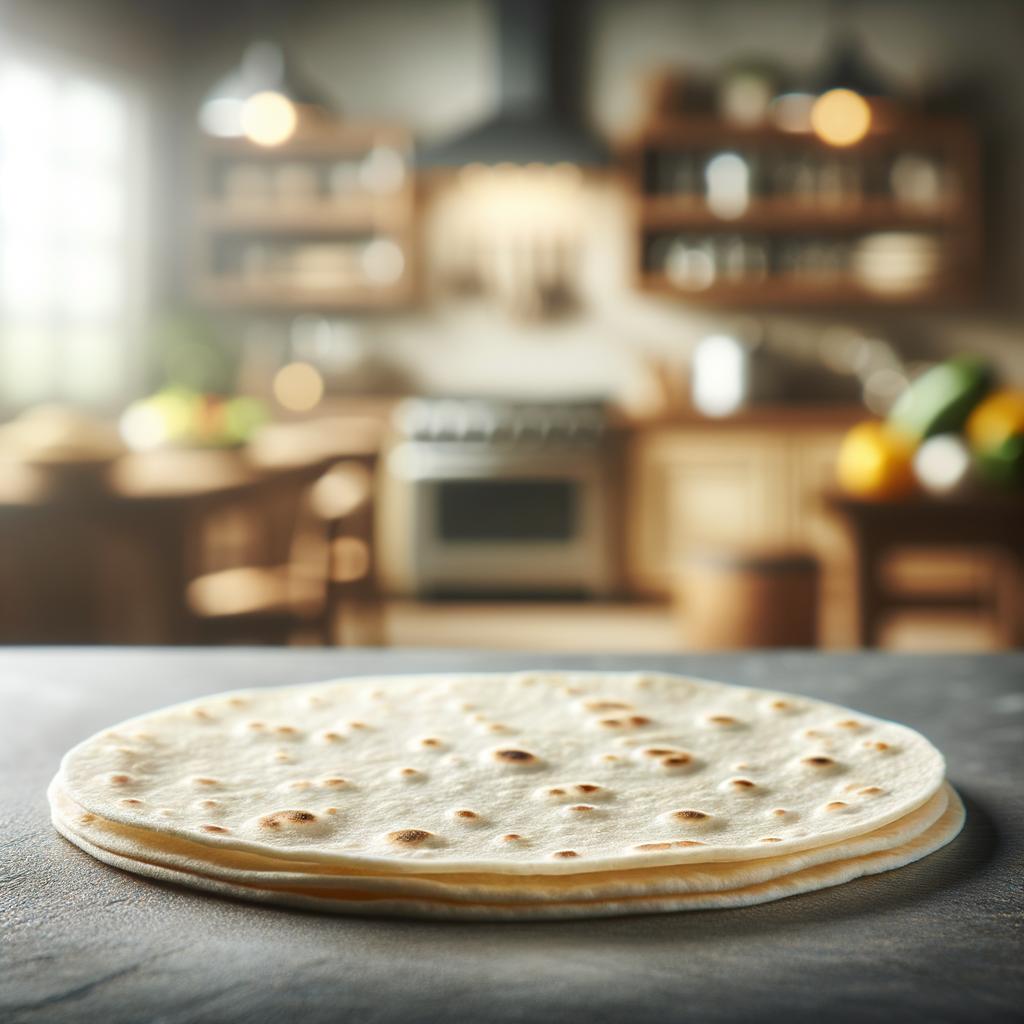Flour Tortilla

Description
The flour tortilla, a staple in Mexican cuisine, is a flat, round bread made from finely ground wheat flour. Its appearance is simple yet inviting, with a pale, soft, and pliable texture that turns slightly golden when cooked. The flavor profile of a flour tortilla is subtly nutty, with a hint of sweetness that comes from the wheat. Its unique characteristic is its incredible versatility, lending itself to be folded, rolled, or even ripped apart, making it the perfect vehicle for a variety of fillings.
Primary Uses
Flour tortillas are commonly used in a wide range of dishes in both traditional and contemporary cooking. They serve as the foundation for classic Mexican dishes such as burritos, quesadillas, and enchiladas. Beyond Mexican cuisine, flour tortillas have found their way into fusion foods, like wraps and pizza bases. In addition to their culinary uses, tortillas also hold cultural significance in Mexico, where they are often used in religious ceremonies and festivals.
History
The history of the flour tortilla is deeply rooted in the culinary traditions of Northern Mexico. They were first made by the indigenous people of Mexico, who used ground maize instead of wheat. The introduction of wheat by Spanish colonizers led to the birth of the flour tortilla. Over time, the popularity of flour tortillas spread across borders, and today, they are loved worldwide. An interesting folklore associated with tortillas is the belief in some Mexican communities that tortillas can cure ailments, leading to the phrase, "tortilla therapy."
Nutritional Information
Flour tortillas are a good source of carbohydrates, providing energy for daily activities. They also contain some protein, fiber, and a small amount of fat. They offer a variety of vitamins and minerals, including iron, calcium, and B-vitamins. However, compared to whole grain or corn tortillas, flour tortillas are lower in fiber and higher in fat. While they are a staple food for many, moderation is key due to their calorie content and lower nutritional density compared to their whole grain counterparts.

